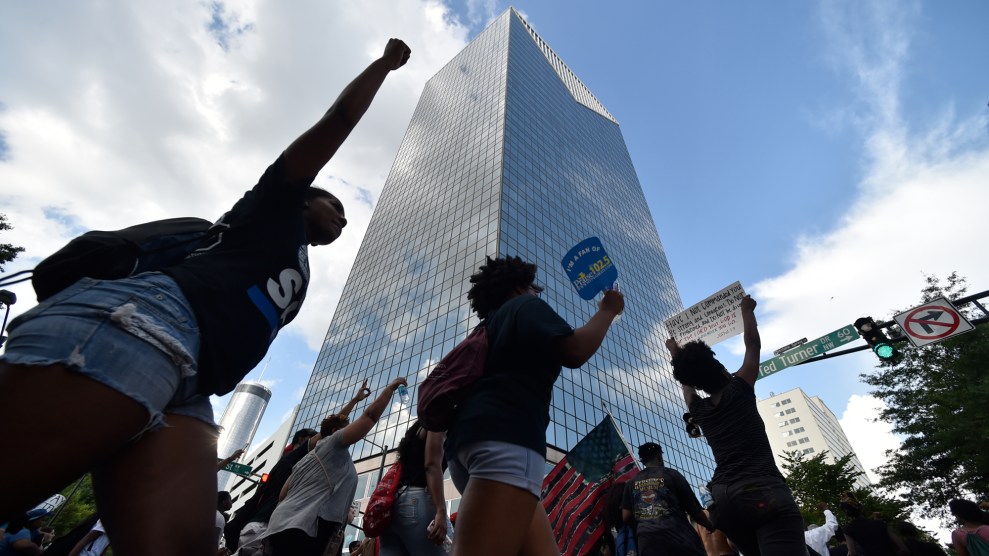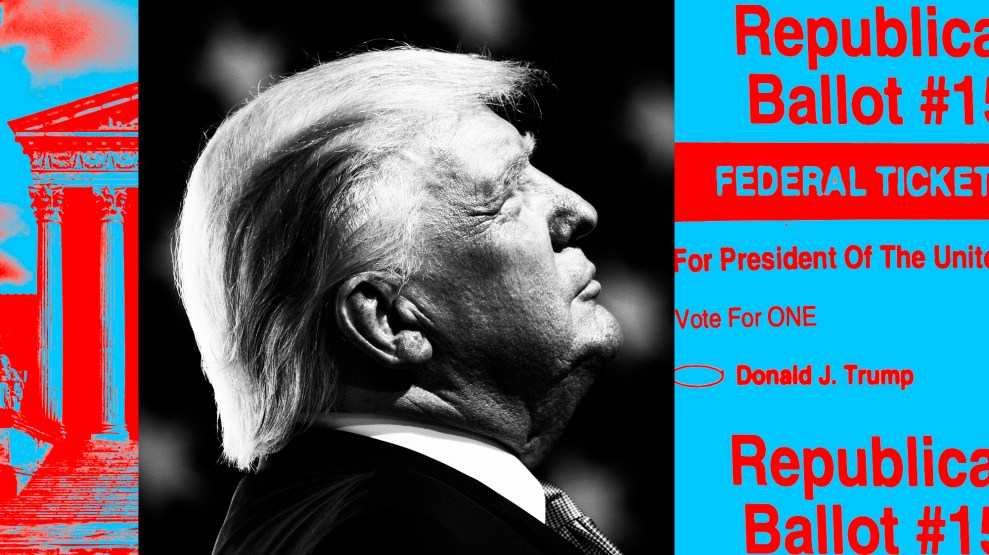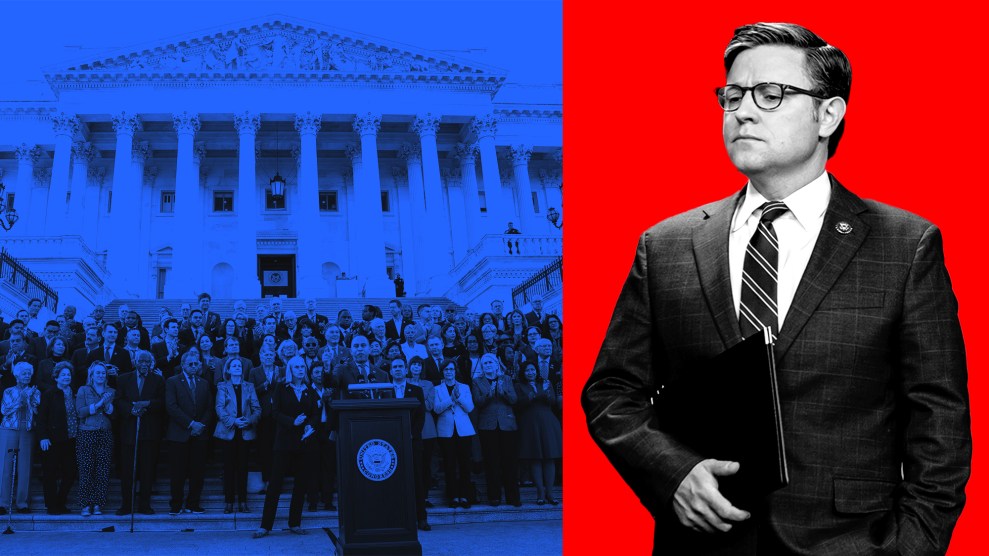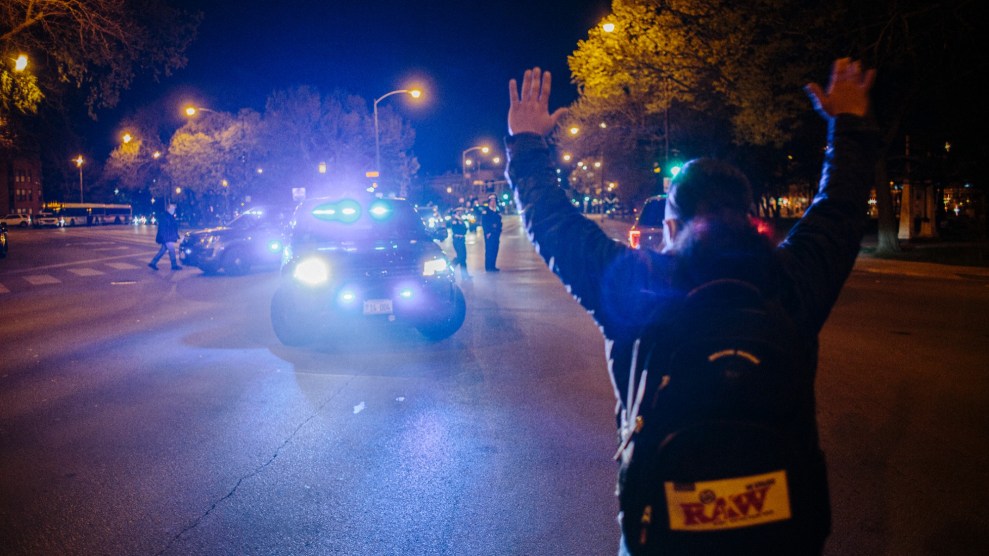
Mike Stewart/AP
For all of the political handwringing about democracy being on the ballot in the 2024 presidential election, civic society experts have found that several states are actively eroding a key pillar of democracy that will undoubtedly come in handy in November: the right to protest.
According to a global watchdog that monitors laws that uphold democracy, International Center for Not-For-Profit Law (ICNL), since the last election, 10 states have adopted new laws restricting protest. ICNL’s interactive map shows many of the restrictions that blanket the southeast and midwest, specifically in Alabama, Arkansas, Florida, Iowa, Kansas, Mississippi, Montana, North Carolina, Oklahoma, and Tennessee. Nearly all of the affected states are dominated by Republican majorities, and two of the 10, Florida and North Carolina, are likely to be swing states in the upcoming presidential election.
Most of these laws were designed in response to the historic protests that have galvanized massive support in recent years, including the Standing Rock Sioux Nation’s stand against the Dakota Access pipeline and the Black Lives Matter movement in 2020. They largely fall into a handful of categories: tacking extreme penalties onto protest offenses (things like blocking traffic or chanting in public places), creating vague definitions of a riot, adding new penalties for protesting near gas or oil pipelines, and making it easier to charge groups of protesters for the alleged actions of a few. Nearly all criminalize nonviolent protest activity.
Some of the new laws—like Florida Governor Ron DeSantis’ “anti-riot” law that was blocked by a federal judge for being unconstitutional—have made national headlines. Others, meanwhile, have been implemented more quietly: In North Carolina, for example, “a public disturbance” by a group of three or more people is now considered a riot and punishable by more than two years in prison. In Tennessee, obstructing a sidewalk or street is now a criminal offense, publishable by a year in jail.
In battleground states like Georgia, state officials have gone to extremes to suppress protests against a highly controversial police training facility known as Cop City, invoking domestic terrorism, racketeering, and money laundering laws in what the ACLU has described as an effort to stifle political dissent. Georgia legislators are also championing a bill that would expand the use of cash bail and cap the number of times a person could be bailed out by family or a community bail fund, which bail expert Jocelyn Simonson says will “muffle community voices while more people remained locked up simply because they are too poor to pay bail.” Similar efforts are underway in Kentucky, Virginia, and Tennessee. These trends, combined with a Republican Party that is increasingly comfortable with election theft, has researchers worried.
“State officials have new tools they might draw on to suppress election-related protests,” says Elly Page, a senior legal advisor at the organization. “If people feel that their voices have been disregarded at the ballot box, it’s worrisome to know that officials have so many ways to shut down the likely alternative, and fundamental, means of democratic participation–the right to protest.”
Page also sees warning signs at the federal level, where, since 2020, legislators have introduced eight anti-protest bills with an explicit focus on punishing protesters. For example, the “Safe and Open Streets Act” would make it a federal crime to block a public road or highway. Just a few days ago, Senator Tom Cotton (R-Ark), who famously called on the Trump administration to invoke the Insurrection Act to put down Black Lives Matter protests in 2020, introduced a new bill that creates mandatory prison sentences for anyone who commits, aids, or threatens “an act of violence” while participating in “a riot.” “Under the bill, someone who knocked over a trash can, or merely threatened to do so, while cheering on an unruly protest, could face 10 years in prison,” ICNL notes in its analysis. For the time being, these proposals are in limbo, but a new Congress could make them law.
What is almost certain is that this November voters will face a double burden of voter and protest suppression. Should Trump attempt to deny the election results again, Democrats will likely call on Americans to take to the street and make their voices heard. But will they take steps now to protect protesters from prosecution? Democracy may depend on it.
















